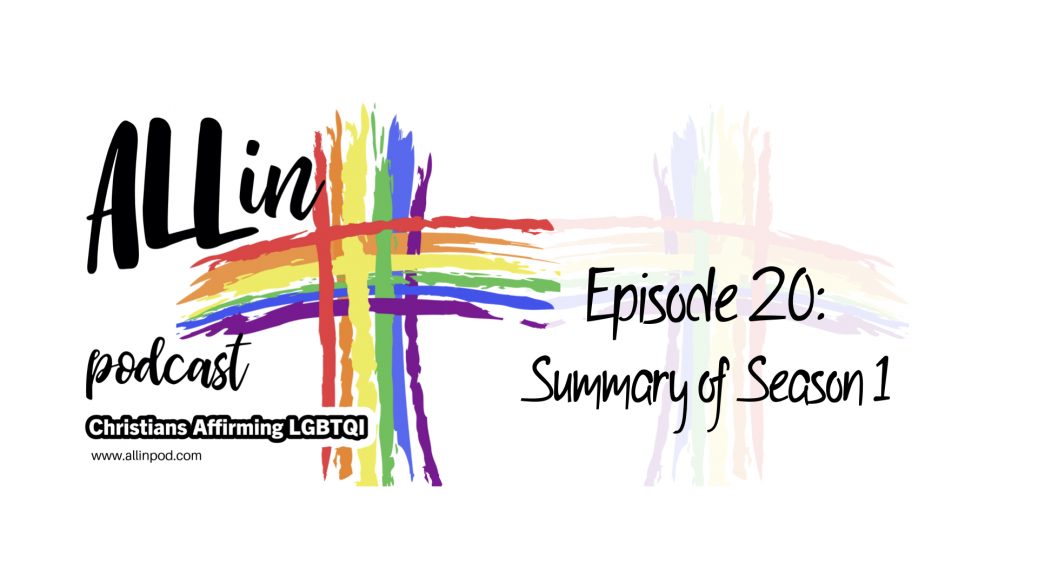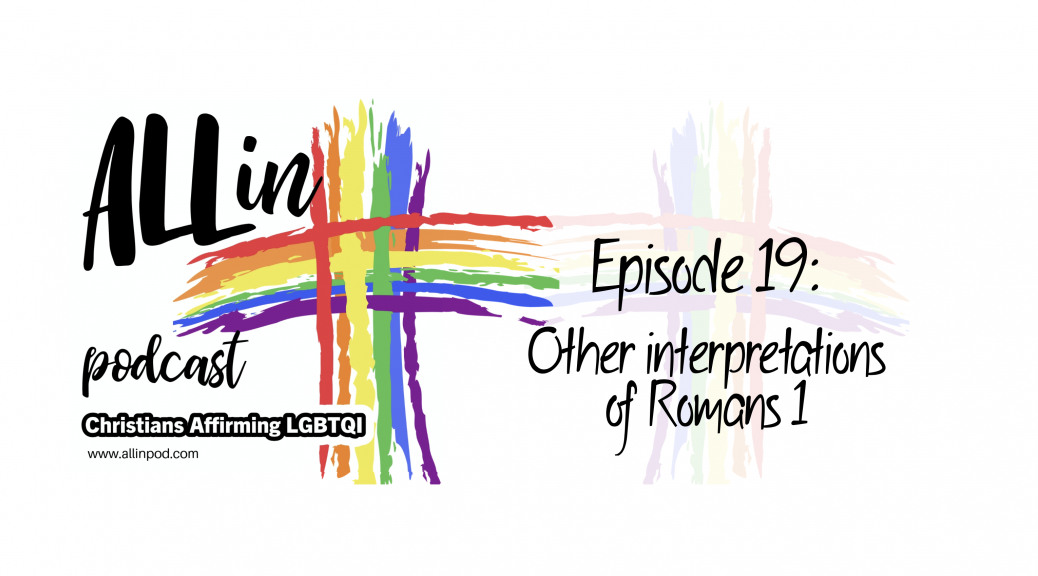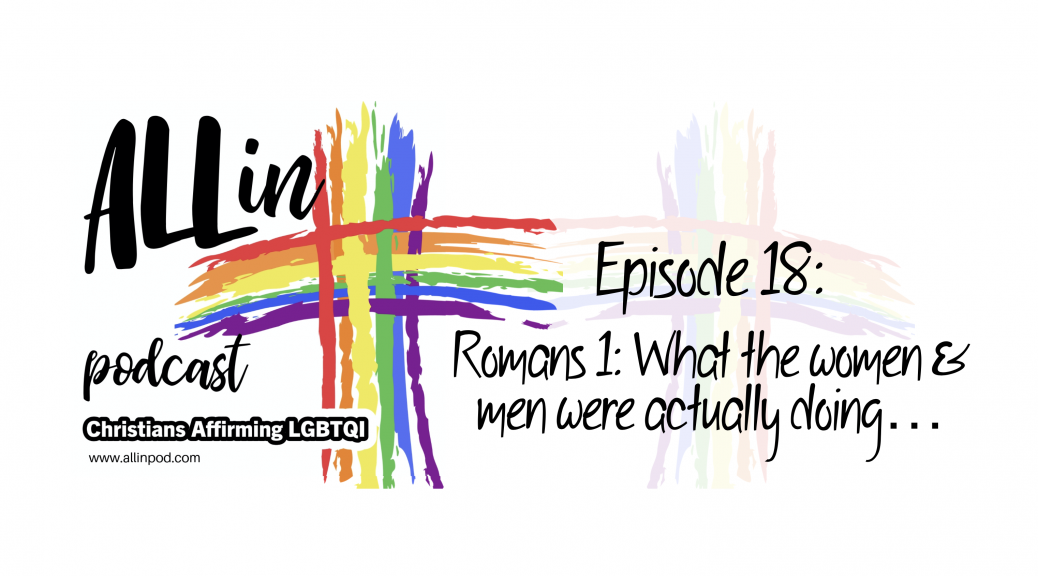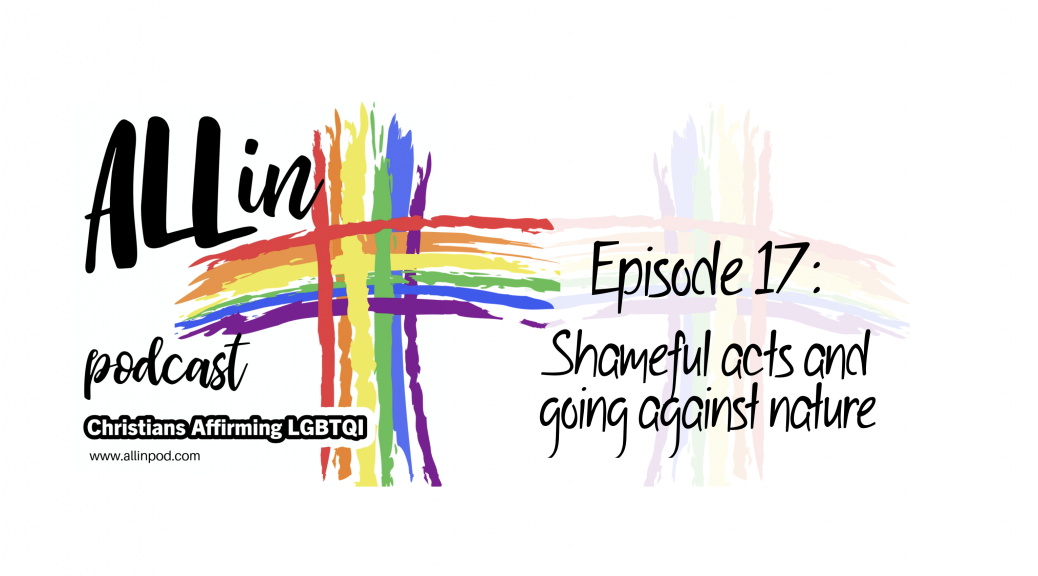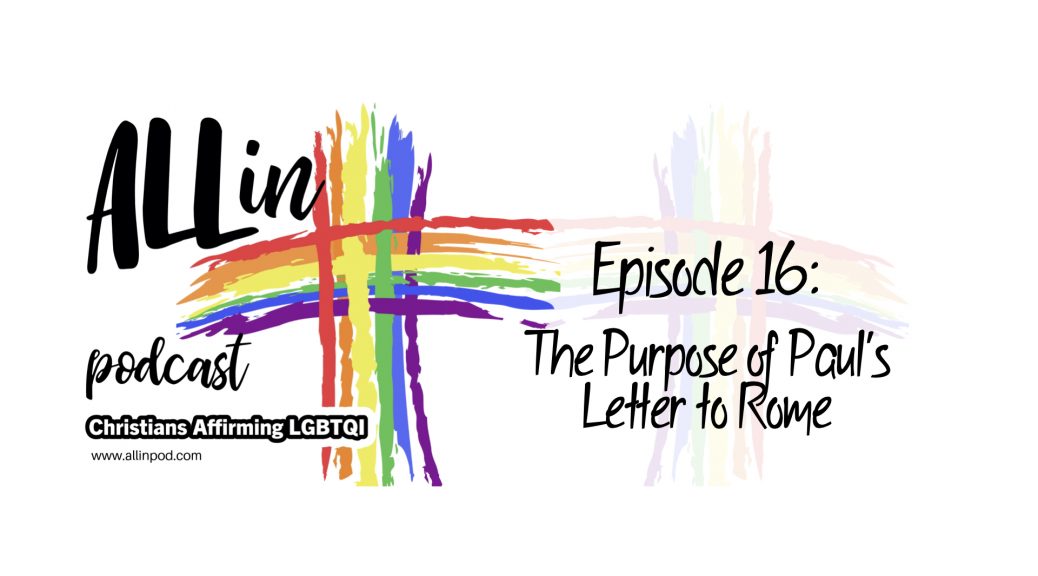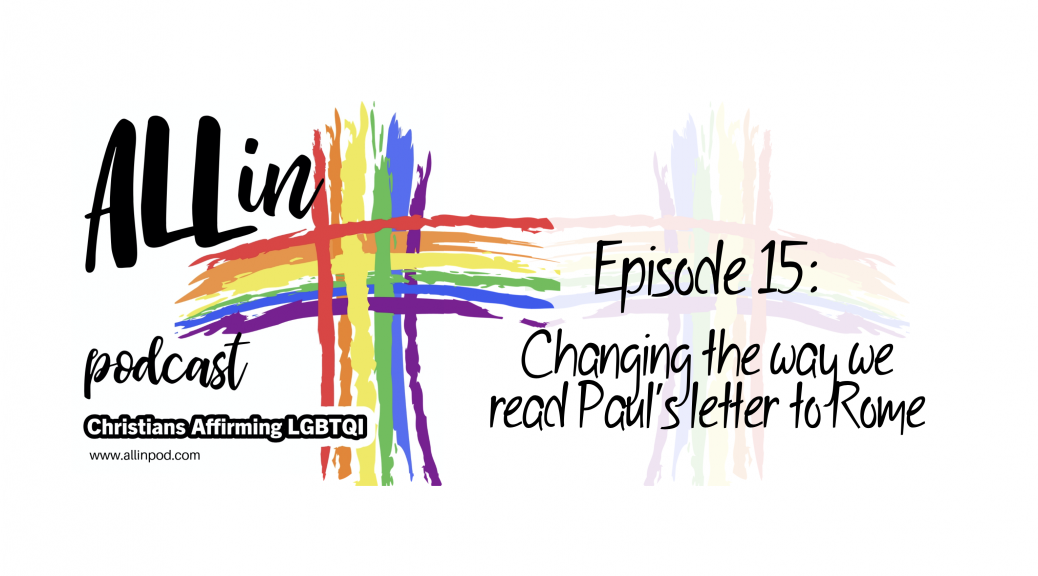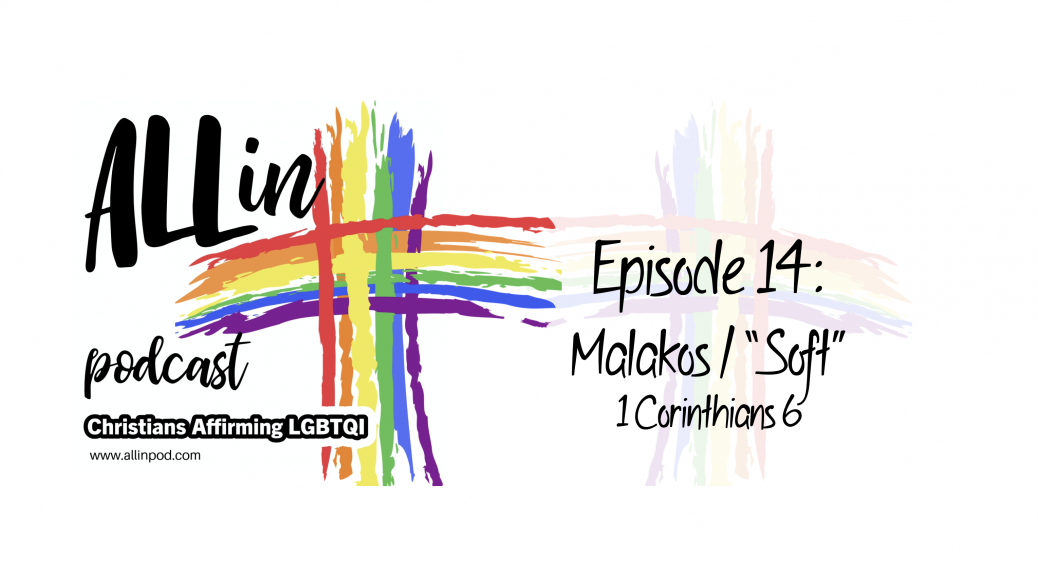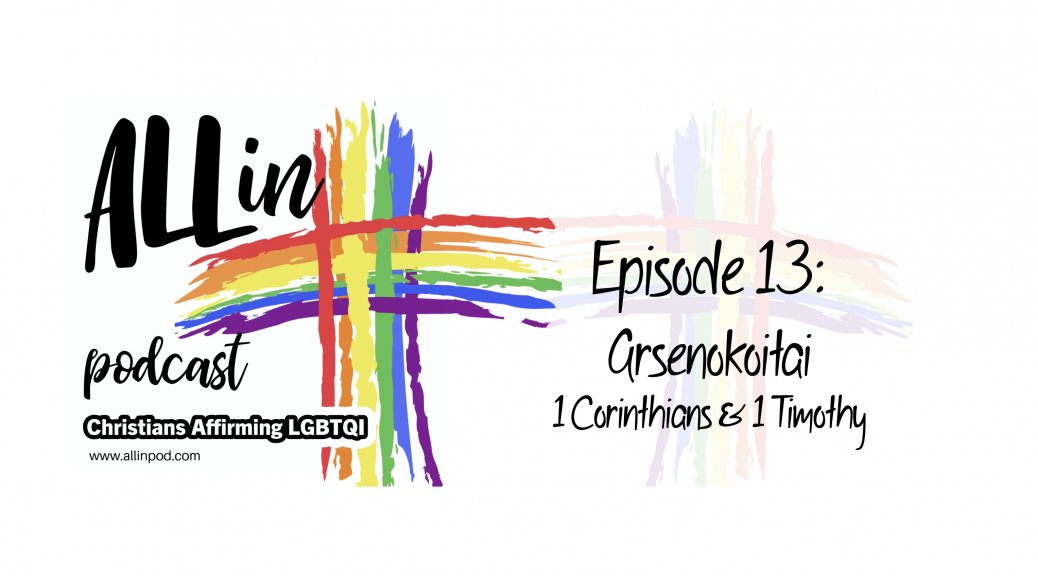Yes, we are still in the book of Romans. For many Christians, Romans 1 is the key passage against same gender sexual activity, so we need to cover it thoroughly. In this episode of the ALLin Podcast, we look at seven additional interpretative options for Romans 1.
If you’re satisfied with my explanations so far, you might want to just skip the rest of this episode. This one has a lot of detail and further options for interpreting Romans 1, for sake of completeness. While I have sympathy for these seven views, I do not endorse them all, and find some more compelling than others. I present them for two reasons. Firstly, for the sake of completeness – these are views held by committed Christians and qualified theologians alike. Secondly, and more importantly, so that those who might still be clinging to a traditional interpretation of Romans 1, despite the detail I have supplied about context and about the meanings of key words, can see that there are significant additional problems with the traditional reading of Romans 1.
There is a danger that by presenting a variety of alternative suggestions for interpretation I will bring confusion rather than insight. I hope not. I think it’s clear to see that the weight of evidence is actually pretty much overwhelming: Romans 1 does not condemn same-gender couples wishing to enter loving, lifelong, covenantal marriages.
Continue reading ALLin Pod: Episode 19: Other Interpretations of Romans →

